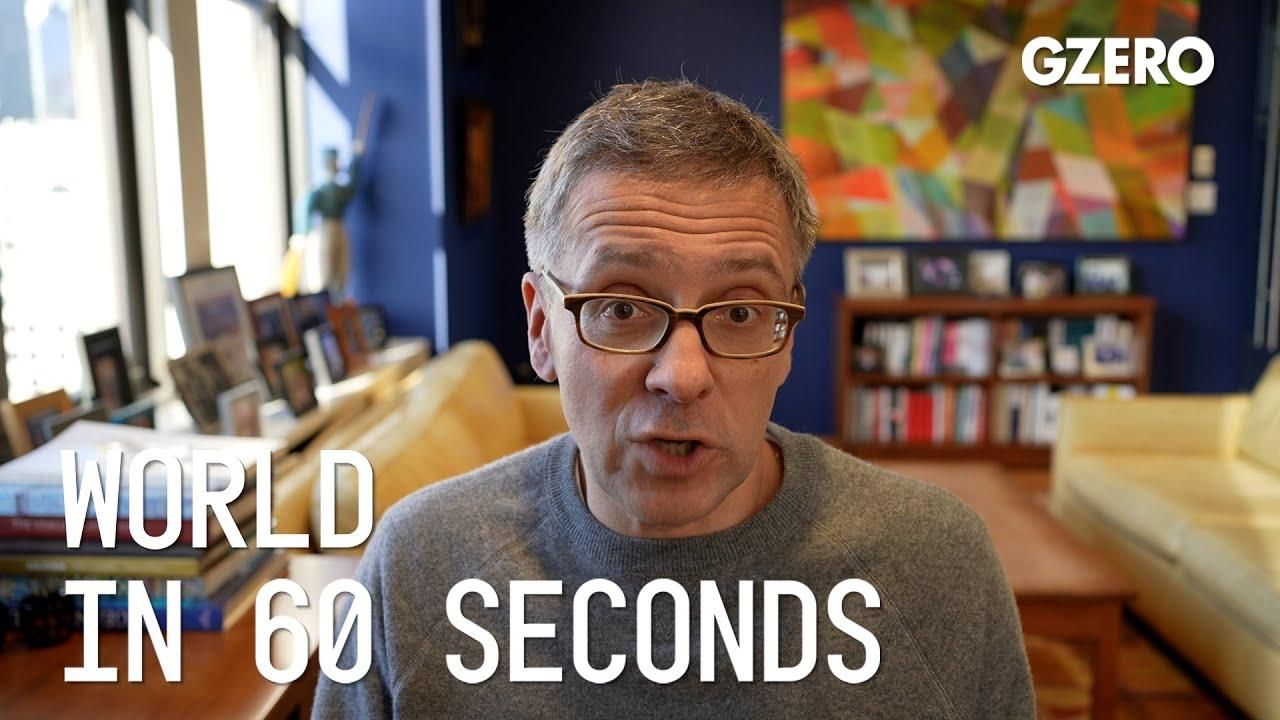Ian Bremmer shares his insights on global politics this week on World In :60.
Will Russia-Ukraine dominate the conversations at this year's Munich Security Conference?
I think absolutely it will be not just the topic of conversation that's keeping everyone anxious, but it will be the top priority. Again, it's in Europe. 50 members of a US congressional delegation showing up. That's a record like by a large number. I'm kind of shocked that many people will be there. The Russians of course won't be there, but the top priority is a war in Europe. Everyone's deeply worried about it as they should. It's the largest risk out there by a factor of magnitude. Balloon gate is not close.
Is Israel's democracy really under threat?
I would say it's eroding. The fact that Netanyahu, the prime minister, is trying to undermine the balance and separation of powers with the judiciary and have it more directly accountable, responsible to the executive would be a weakening of the Israeli political system. That would make it more of a flawed democracy, more of a hybrid democracy. Then of course, there's the broader question of outside of Israel, the occupied territories and how they are governed and how the Palestinians there do not have, do not enjoy actual citizenship, and are treated as second class citizens clearly has an impact on Israeli democracy as well. Put those two things together, flawed democracy is increasingly what we're talking about.
Finally, should I care about balloongate?
Well, I mean now that we're calling it balloongate, I guess you have to care about it. I mean, how many of these things are actually balloons? I don't know. We don't know what they are yet. What we do know really is that after the Americans shot down the Chinese balloon, NORAD really opened the aperture for what they are tracking, what they're paying attention to, and what the Americans might be willing to shoot down. So the fact that you have a bunch of additional stuff being shot down does not imply a greater threat. It implies a reduced threat tolerance. And the potential that that's going to antagonize third parties is going up. Very little reason to believe so far that the other objects are coming from China or are part of that surveillance program.
More For You
Ian Bremmer sits down with former US Ambassador to NATO Ivo Daalder to unpack a historic shift in the transatlantic alliance: Europe is preparing to defend itself without its American safety net.
Most Popular
Think you know what's going on around the world? Here's your chance to prove it.
Argentina, Armenia, Belarus, Egypt, Indonesia, Jordan, Pakistan, Paraguay, Vietnam – to name only a few.
A poster featuring Andrew Mountbatten-Windsor, formerly known as Prince Andrew, is installed on a sign leading to the parking area of the Sandringham Estate in Wolferton, as pressure builds on him to give evidence after the U.S. Justice Department released more records tied to the late financier and convicted sex offender Jeffrey Epstein, in Norfolk, Britain, February 5, 2026.
British police arrested former Prince Andrew Mountbatten-Windsor today over allegations that in 2010, when he was a UK trade envoy, he shared confidential government documents with convicted sex offender Jeffrey Epstein.
